11 min read
Renting to Traveling Nurses: A Landlord’s Handbook
Amid the ongoing shortage of healthcare workers in the U.S., renting to traveling nurses can provide numerous benefits for both landlords and their tenants....

Are you interested in generating passive income by managing a rental property? Rental income can cover your mortgage payment, offering financial security, particularly if you become a successful landlord. If you’re not sure where to start, look no further than this comprehensive guide.
We’ll walk you through each step of the process, starting with purchasing your first rental property. We recommend reading through this guide at least once all the way through, then using the links below to jump to any sections you’d like to revisit. Let’s get started!
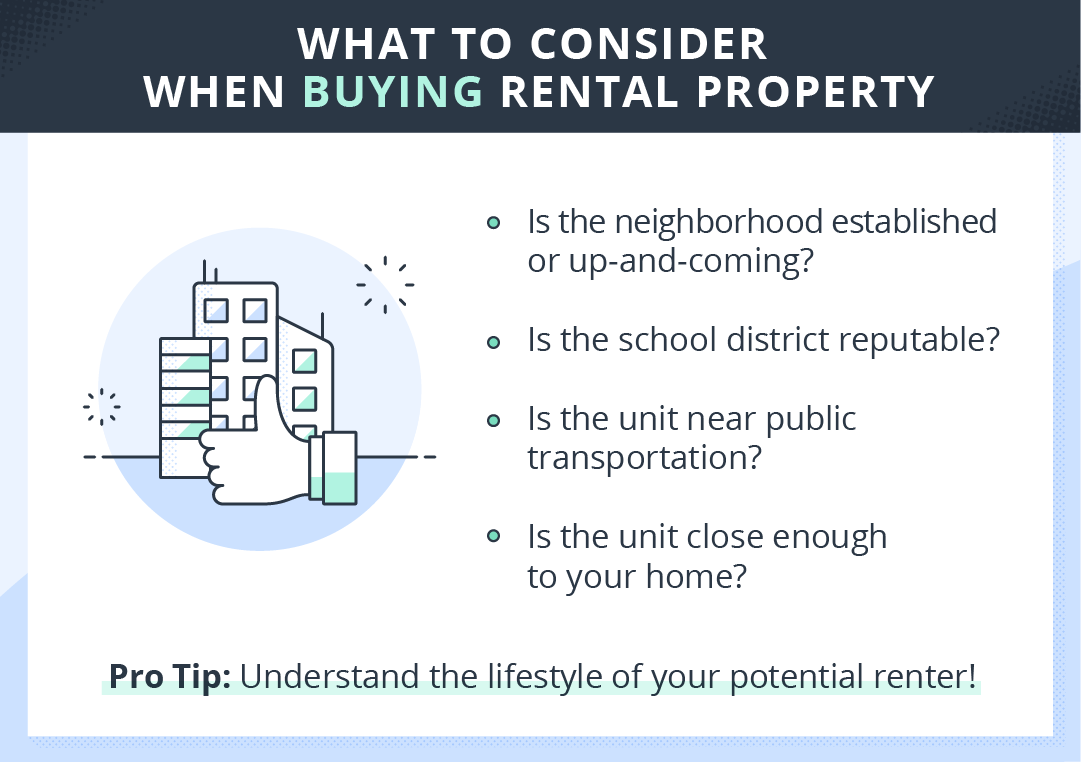
Buying a rental property is the first step to becoming a landlord, and arguably the most important. That’s why keeping the marketability of your future rental property top of mind is crucial to becoming a successful landlord. While the most affordable property might seem enticing, it may not be the best investment strategy.
When considering which piece of real estate to buy, first-time landlords must put themselves in their prospective tenant’s shoes. What’s the neighborhood like? Is it established or up-and-coming? If the rental will be marketed towards a family, are there quality schools in the district? If the rental is geared towards a younger generation of tenants, is there easy access to public transportation, restaurants, and shopping?
Understanding who your potential renter will be will help you evaluate the property through a different lens. After all, the profitability of the rental hinges on finding and keeping great tenants, and that starts with having a clear vision of who that may be.
You’ll also want to consider how close the rental is to your permanent home. Unless you hire a property management company, you’ll likely be responsible for showing the property along with taking care of maintenance issues, tenant lockouts, and general property upkeep. Your time is valuable, so factor in how often you will have to visit the rental property when looking at your local real estate market.
PRO TIP: If finding a rental unit is stressing you out, contact a local real estate agent. They can schedule walk-throughs for you and answer any real estate-related questions you have about buying your first investment property!
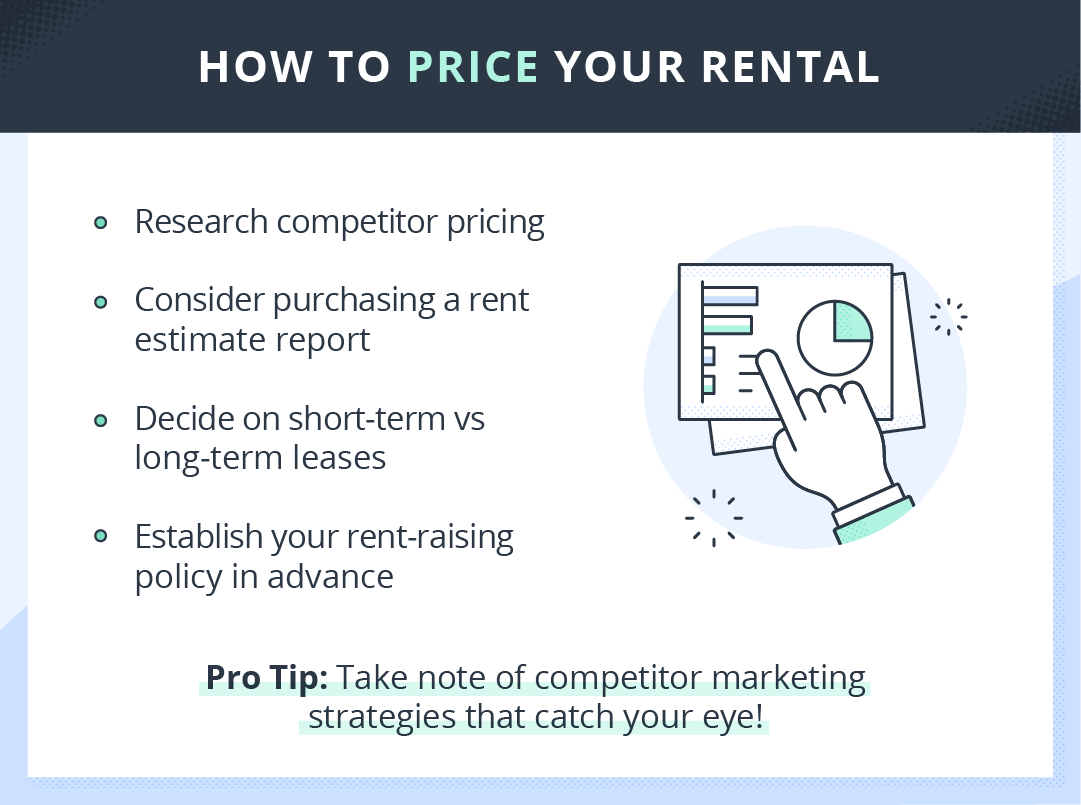
Setting your rental price can be tricky. You want to make sure that you set it high enough to cover all of your expenses and provide a nice cash flow if possible, but not too high since that could lead to occupancy issues.
Curious what you should charge for rent to be competitive in your local market? It’s crucial to…
You will want to do a thorough analysis of rental prices in the neighborhood or building where your property is located. Your potential tenants will be doing this too, so you need to understand where you fit and why. Find a nearby property with similar square footage, bedrooms, bathrooms, and amenities as your starting point.
If you have more amenities (such as a newer property, parking, lawn care, etc.), take these features into consideration when pricing your rental.
Another benefit of researching the competition yourself is seeing how other landlords are marketing their properties, including their descriptions, photos, and policies. Take note of any listings that catch your eye. Ask yourself why they stood out to you so you can use the same tactics when marketing your rental. Then, run a rent estimate report to ensure your pricing is competitive.
If you’re looking for more marketing tips, this blog can help!
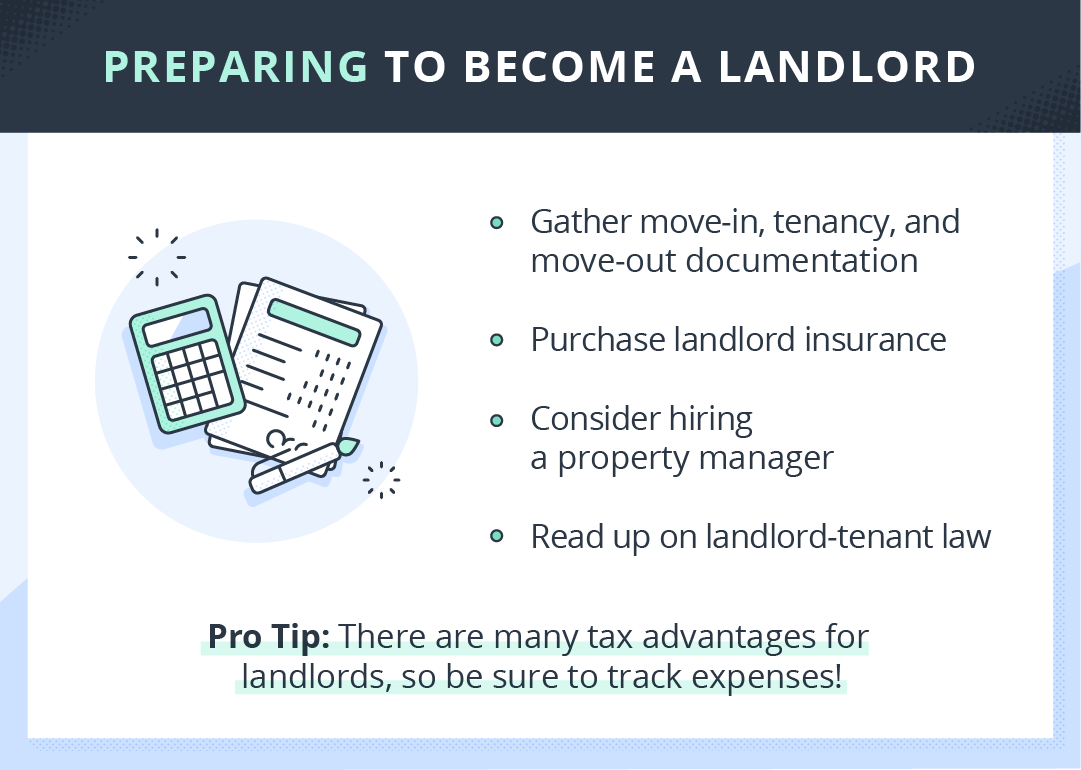
Successful landlords put processes and procedures in place from the beginning that uphold Fair Housing laws (along with local and federal laws). Follow our tips below to build a proper foundation for your real estate investment.
The best thing you can do to protect yourself as a landlord is to keep proper documentation whenever you are interacting with your tenants and keep those records on file even after the tenancy is done. In some states, you’ll want to save that information for as long as six years, but again, check your local and state laws for specific timelines.
Document needs can be broken down into three phases – pre-move-in, during tenancy, and pre/post-move-out.
Here are a few of the essential pre-move in documents you’ll need:
Once the tenant has moved in, provide written notice before entering the unit and document the event in your notes. You’ll also want to send a note if they’ll be impacted in any way. For example, give your tenant proper notice when it comes to:
If your tenant has decided not to renew their lease, you will want to properly close out that tenancy. To that end, you’ll need:
If all these forms have your head spinning, don’t worry! Purchase and download TurboTenant’s Ultimate Landlord forms pack.
You have your ideal property and your pricing planned. Now it’s time to decide the length of the lease you’d like to offer.
While doing your rent research, take note of the most common lease length offerings in your vicinity. If they are all year-long lease commitments, it would make sense to position yours similarly. If they seem to be shorter or month-to-month leases, do more research to understand why that might be the case.
A month-to-month lease can be a better option for tenants, but often benefit the landlord less. However, you may be able to charge a premium for a month-to-month lease option.
Tenant turnover is one of the costliest and most time-consuming expenses that you will have as a landlord. That’s why we recommend avoiding the issue by securing long-term tenants at a competitive rental price to provide the best return on investment.
There are state-specific laws, rights, and responsibilities for both landlords and tenants. Abiding by each law in your area is crucial to your success as a landlord. Legal fees and lawsuits are expensive and time-consuming, and knowledge is power when it comes to understanding your responsibilities.
While rental laws vary across the country, one thing that doesn’t change is the Federal Fair Housing Act. This law protects people from discrimination when they are renting, buying, or securing financing for housing. The Fair Housing Act makes it illegal to advertise “any preference, limitation, or discrimination because of race, color, religion, sex, handicap, familial status, or national origin, or intention to make any such preference, limitation, or discrimination.”
If you are going to reject a tenant, you must make sure that you properly document why you are rejecting them and make sure it isn’t based on a protected class covered by the Federal Fair Housing Act.
There are some rental policies that can be individualized based on the landlord’s preferences, and you should be covered as long as you’re following federal, state, and local housing laws. Some standard policies to put in place are:
Each landlord should create their policies, have the tenants sign off on the policy, and keep a copy in the tenant’s file. You will also want to state in each policy what the penalty is for breaking the agreed-upon terms. If you make any updates to your policies, let your tenants know and have them sign an amended policy so their file is up to date and everyone is operating under the agreed-upon terms.
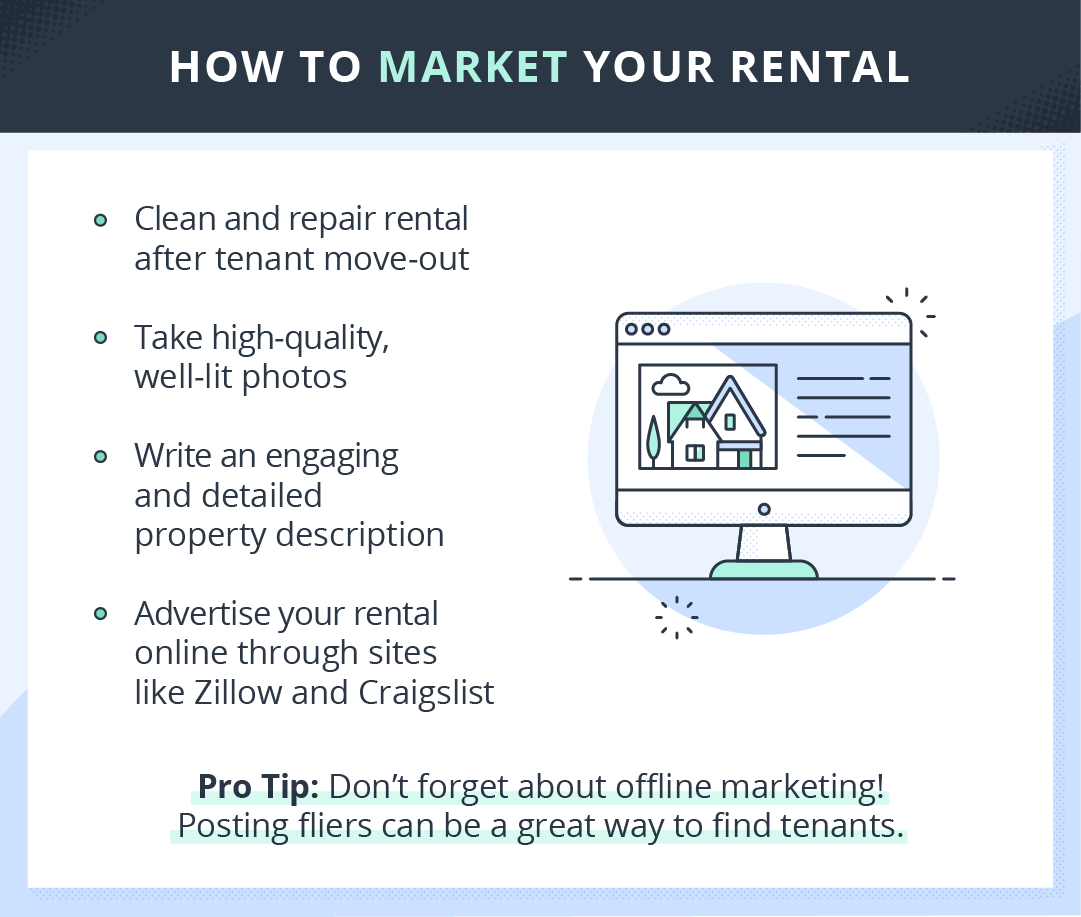
Effectively marketing your rental is critical. Prolonged vacancies are one of the most stressful, costly, and time-consuming aspects of being a landlord. The best way to stop that from happening is to communicate with your tenants about upcoming vacancies and lease renewals, time move-out and move-ins accordingly, and market on the right online and offline channels.
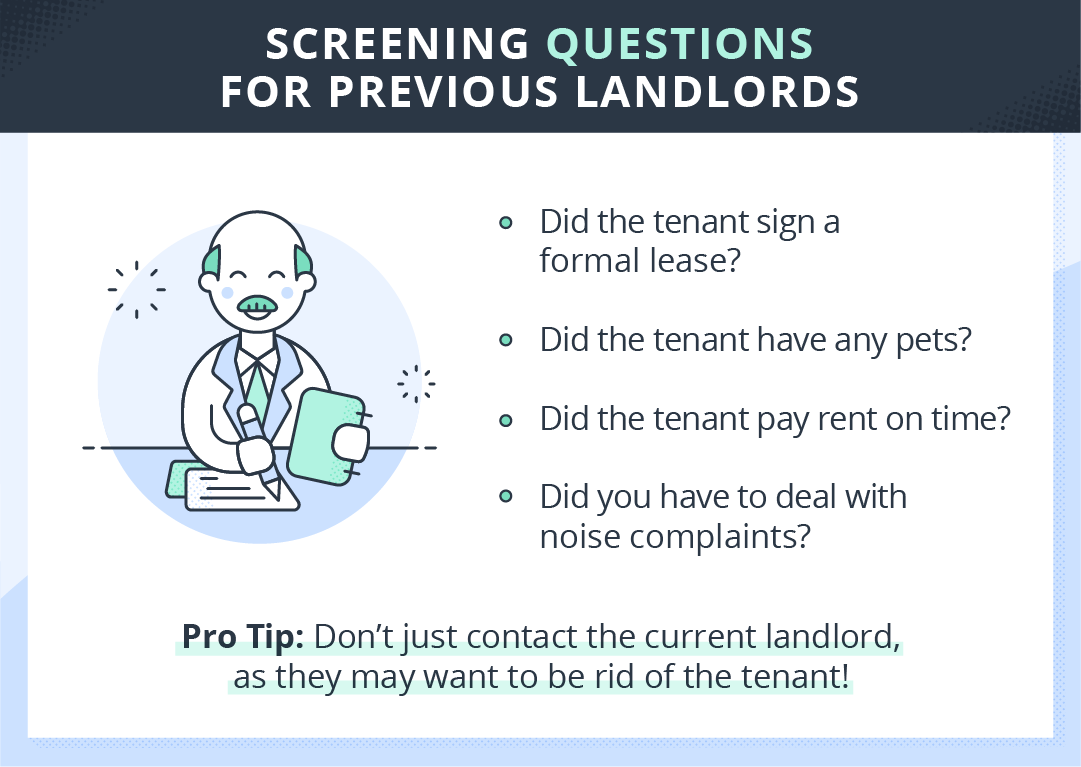
Your rental is posted on all of the popular listing sites, you have great photos and a fantastic description, so the leads start pouring in. What should you do to make sure you rent to good tenants?
The answer is tenant screening, and it’s highly critical to becoming a successful landlord.
The best way to cut down on the time you will spend sorting through leads is to set clear expectations in your rental advertisement. If you keep getting the same questions from prospects, update your description to include those answers. Doing so will save you time and deter renters who are not a good fit. It’s also best practice to have a list of pre-qualifying questions that you will want each prospect to answer, which may center on their:
Once you have pre-screened your rental prospects and identified the top candidates, ask them to fill out a rental application and run a credit, criminal, and eviction background check on each applicant. Tenant screening reports provide hard data regarding an applicant’s credit score, criminal history, eviction, and payment history. This is one of the best ways to protect yourself as a landlord, and it’s a standard procedure for savvy landlords.
You’ll also want to request references from your applicants’ past landlords. Take this opportunity to ask them questions. Their answers will provide another data point to help you narrow down your rental leads. Consider asking:
PRO TIP: If you are getting resistance or pushback on tenant screening questions and requests, that could be an indicator that the prospect has something to hide. Be firm on your policies and treat each prospect fairly, if you get resistance, it might be time to move on to the next lead.
Becoming a landlord officially starts when the lease is signed. Lease agreements are regulated state by state, so you’ll want to make sure that you have a legally binding lease. TurboTenant offers state-specific leases for many states, should you need one!
Once the lease is signed, you will want to coordinate the move-in and initial inspection with your new tenant. Using a move-in checklist allows you to establish and maintain a baseline in terms of the condition of the rental. It is best to do this alongside the tenant and to take pictures for reference during both routine and move-out inspections.
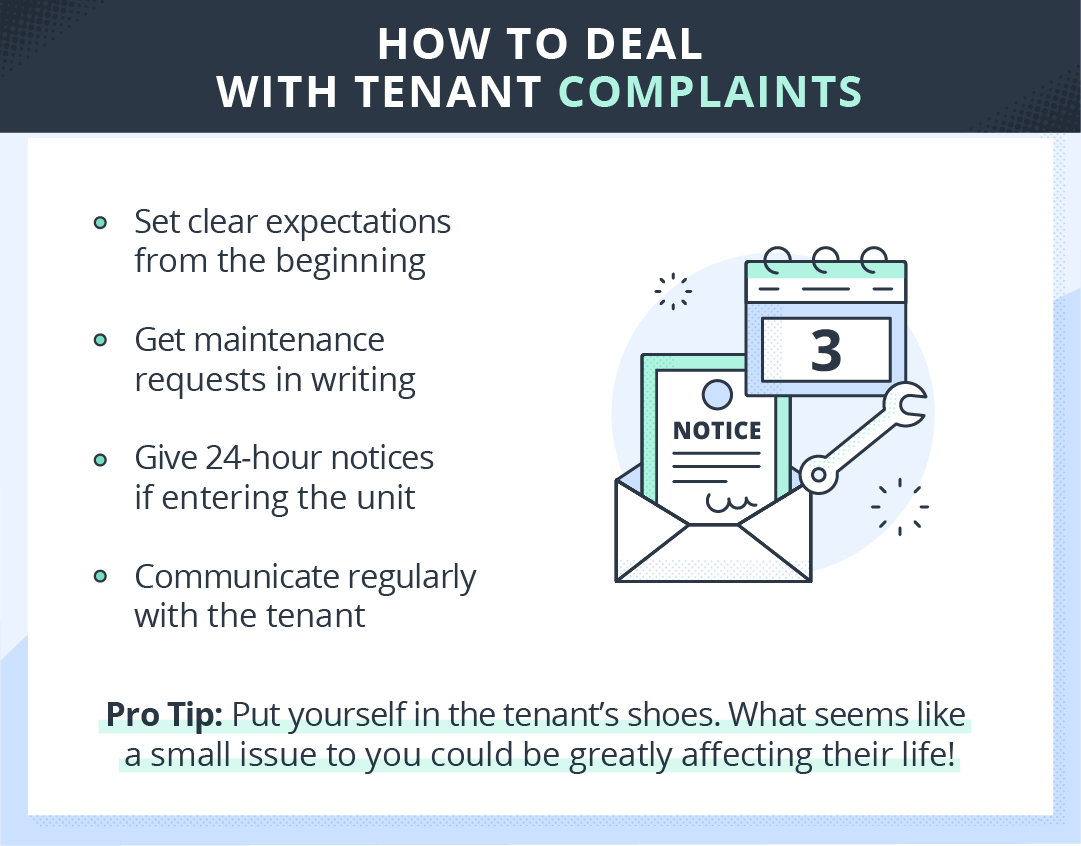
You spent time and money finding a great tenant. Now the goal is to keep them. Becoming a landlord involves building and maintaining a good relationship with your tenant.
You will want to establish policies around rent collection as well. Be clear and concise about expectations when discussing payment options with your tenant. Here are a few questions to consider:
Online rent payments are starting to become the standard for landlords and renters. Some payment platforms will let you set automatic payments as well, which benefits both parties: the renter doesn’t have to remember to pay rent each month, and the landlord knows exactly when to expect their payment. Whatever method you choose, just communicate your policies clearly and concisely to ensure that rent is paid on time.
Maintenance requests and tenant complaints will inevitably come up turning your renter’s tenancy. Again, the best way to set yourself up for success is to have policies and procedures in place for addressing maintenance requests and tenant complaints. Here are a few of the best ways to handle these situations:
If your tenant has a noise complaint or receives one, let them know in writing and keep a record of the complaint in their tenant file. Here’s a sample template:
NOISE COMPLAINT LETTER
Date: ______/______/20_____
Dear ______________________:
We have received complaints regarding loud noise coming from your unit. Please make sure any noise is always kept to a reasonable volume, with extra care between the hours of 10 pm-8 am. This is for the benefit and enjoyment of all tenants.
Loud noise is in violation of City Ordinance (fill in ordinance #) and is a misdemeanor. If we continue to receive complaints, we will be forced to notify the police department directly.
Thank you in advance for your cooperation in this matter.
Sincerely,
(Sign here)
(Printed name)
Conducting periodic inspections is essential to ensuring that your property is in good condition and that there aren’t any maintenance issues that need to be addressed. It can depend on the tenant, but it is best to perform routine inspections every couple of months.
You will want to reference your previous inspection checklist and pictures you took, documenting anything that has changed or needs to be repaired. Both the landlord and the tenant should sign off on the inspection. You will also need to give your tenant prior notice before entering the rental.
In our world of constant connectivity, communicating with your tenants may take place through a variety of channels. They may call, text, email, or discuss issues and concerns with you in person. While the best way to keep a great tenant is to communicate effectively and efficiently with them, it’s important to set boundaries and expectations regarding communication as well. Give each tenant an emergency contact sheet, and highlight the best (i.e., your preferred) method of communication for both emergency and non-emergency situations.
As the landlord, you will also want to make sure that you are respecting the privacy of your tenants. If you happen to live nearby or in the same building as your rental, don’t become overbearing or nosey. Respect your tenant and give them the space they need to live in peace.
Evictions are costly and time-consuming. It is best to try and avoid them at all costs. One of the best ways to avoid an eviction is to screen your tenants and properly vet them during the selection process. After that, taking a proactive approach to building a healthy landlord-tenant relationship is essential.
We can’t stress it enough: having clear policies and keeping proper documentation will set you up for the greatest success in all landlording matters. That said, some evictions are unavoidable. Here’s a list of common reasons eviction proceedings take place:
It’s also important to know your state’s laws regarding eviction proceedings. They can vary, and you’ll want to make sure you understand how the process will work. Follow every law to protect yourself and resolve the eviction quickly.
If your tenant chooses to move out, you will want to make that process as smooth as possible. This will help you fill the vacancy quickly and decrease costs associated with tenant turnover. If your goal is to have minimal time without a renter, you’ll want to start to list your property as soon as you receive notice of non-lease renewal. If you need to take updated pictures or schedule showings while your current tenant is still there, be sure to give them at least a 24-hour notice of entry.
Once you have agreed on a move-out date, you’ll want to schedule the final move-out inspection. This is where you’ll reference all of your previous inspection checklists and document any damages and changes in appearance, along with wear and tear. You will also need to set expectations regarding cleaning, handing over keys, and returning their security deposit. Again, laws will vary state by state, but there’s typically a set number of days the landlord has to return the deposit (as well as provide a list of deductions, if applicable).
There’s so much to learn about being a landlord, and TurboTenant is here to help every step of the way!
Establish your policies regarding rent increases early, and be transparent with your tenant regarding the amount and timing. Landlords typically raise the rent around 3% per year at the time of lease renewal to adjust for inflation. Legally, landlords are allowed to raise the rent once lease renewal rolls around, but be sure to check your local and state laws before deciding to increase your rental price.
If you make major renovations, update appliances, or increase the square footage, your efforts may warrant a larger increase. The key is to be transparent and give your tenants a formal letter, at least 30 days before the rent increase, explaining the exact details of the increase and when it will go into effect.
For more communication tips, check out this blog!
To hire or not to hire — that is the question. There are pros and cons to consider when evaluating whether or not to hire a property manager. With the rise of online property management tools, the need to have someone on-site or nearby has decreased, but keep your specific situation top of mind when making this decision. Below, we’ve outlined the pros and cons of hiring a property management company.
If you want to be a hands-off property owner and focus on marketing, filling vacancies, screening tenants, and maintenance requests sounds like torture, then hire a property manager. (If you’re a virtual landlord, having reliable help nearby is a must.) Hiring a skilled property manager will save you time — and when it comes to an investment property, your time is money.
The first and foremost con of hiring a property manager is the cost since their salary will directly impact your bottom line. As such, we recommend running a cost-benefit analysis to determine if this move is financially feasible. If you purchased your rental at a great time and are able to charge premium rent, the cost might be easily absorbed and well worth the added peace of mind. However, if the rent barely covers the mortgage, it might not be a wise financial decision to hire a property manager.
There are many tax advantages for landlords. The best way to set yourself up to take advantage of those deductions is to put a process in place to track your expenses. Here’s a list of the top nine tax deductions for landlords:
The goal of becoming a landlord is to maximize your return on investment. When it comes to taxes, that means taking advantage of your eligible deductions to boost your bottom line.
Below are some common questions you might have about becoming a landlord.
How much money you will make as a landlord is dependent on a lot of variables, including but not limited to the property’s overhead (mortgage, insurance, taxes, etc.), competition within your rental market, tenant turnover, property manager costs (if applicable), and maintenance costs.
Most cities will require that a landlord get a license to rent out a property. Again, this will vary from state to state and city to city. We recommend contacting your local Department of Housing to determine what licensing is required to legally rent out your property.
The first step to becoming a landlord is strategically purchasing a rental property. The next step should be to understand your state and local laws regarding owning a rental and acquire any licensing that may be necessary.
The profit you can make from your rental property is largely market-dependent, though your overhead costs and property taxes will factor into your bottom line as well. Conduct a cost-benefit analysis to understand your break-even point, then aim to keep expenses as low as possible and rent as competitively priced as possible to meet your goals. Investing in a rental property is a long game; the greatest gains will be seen as the property matures and vacancies are minimized.
Yes, anyone who rents out a property that they don’t live in should purchase landlord insurance. The purpose of landlord insurance is to protect you from financial losses, so in the event of a fire, flood, or other tragedies, you are covered. There are two types of landlord insurance: property and liability protection.
Property coverage typically covers anything related to the physical property and equipment used to maintain that property. This would include repairs for things like fire, flood, hail, and other covered losses.
The other coverage you will want to get is liability coverage. This will help pay for medical expenses or legal expenses if someone was injured on your property and the court deemed that it was due to negligence or lack of maintenance by the landlord.
PRO TIP: Landlord insurance will not cover any damages to your tenant’s belongings, which is why it’s advisable to require your tenants to carry their own renters insurance. If you’ll require them to have it, keep a copy on file for your records.
When screening your tenants and running a credit, criminal, and eviction report, look at the following:
Becoming a landlord is a long-term investment strategy. As with any business, creating a proper foundation is a key element to your success. While the list of prep work might seem daunting, establishing procedures is key to remaining efficient and profitable as a landlord. The best part about creating a solid foundation? When you decide to purchase another rental property, you’ll be set up for success.
Need help marketing your rental, accepting online rental applications, and screening tenants? TurboTenant can help you streamline the entire process. Success is only a click away!
11 min read
Amid the ongoing shortage of healthcare workers in the U.S., renting to traveling nurses can provide numerous benefits for both landlords and their tenants....
13 min read
Between marketing vacant rentals, screening applicants, creating lease agreements, managing maintenance requests, collecting rent, and keeping track of accounting, landlords always have...
13 min read
In the digital era, we all conduct more of our lives online—landlords and tenants alike. A July 2024 survey from Apartments.com revealed...
Join the 700,000+ independent landlords who rely on TurboTenant to create welcoming rental experiences.
No tricks or trials to worry about. So what’s the harm? Try it today!
TurboTenant, Inc., © 2025
Created in Sunny Colorado